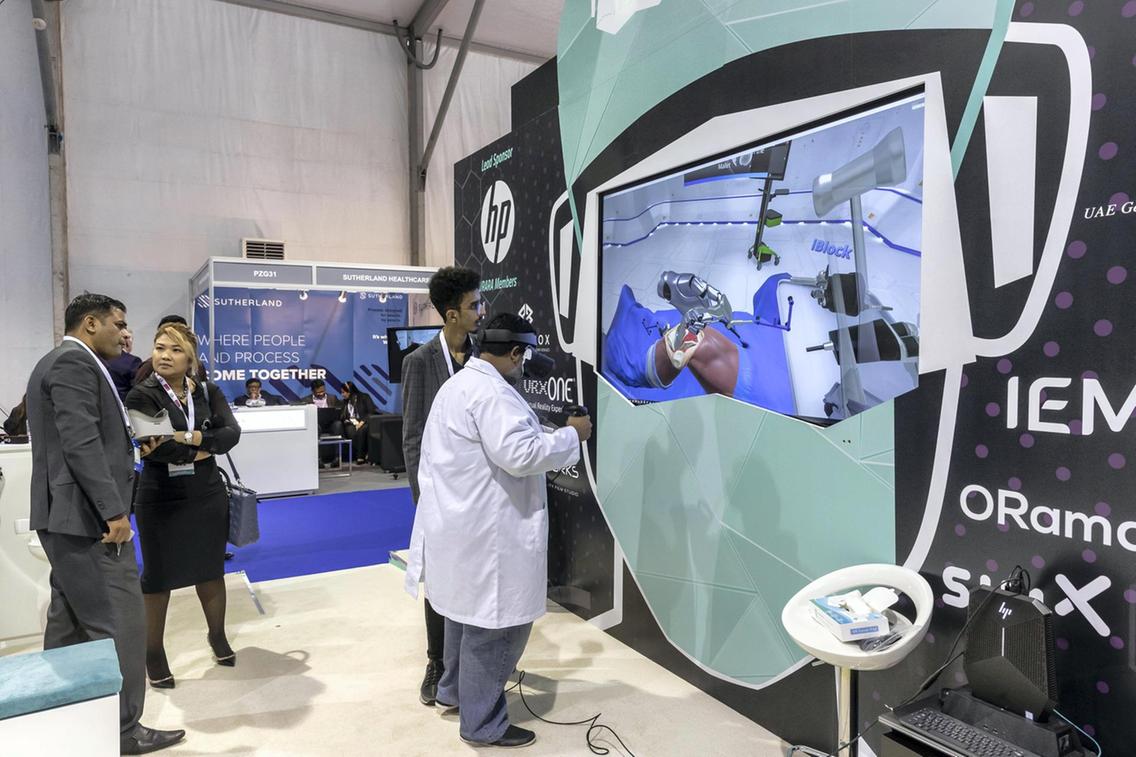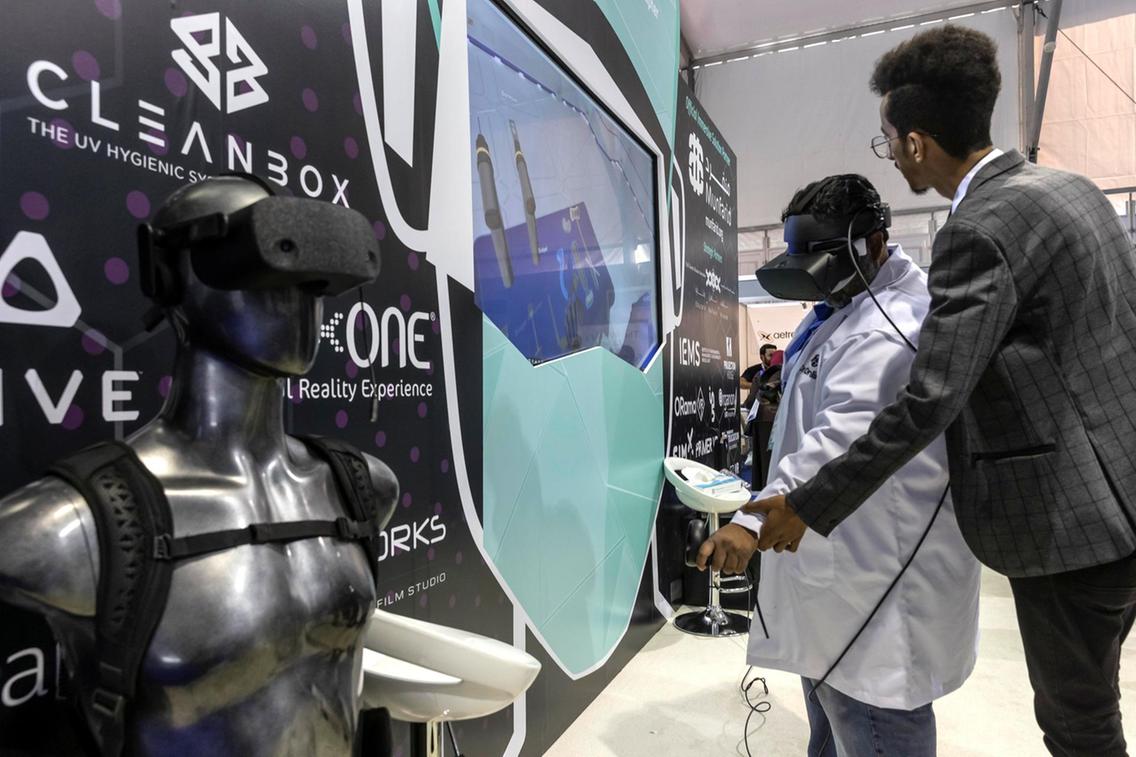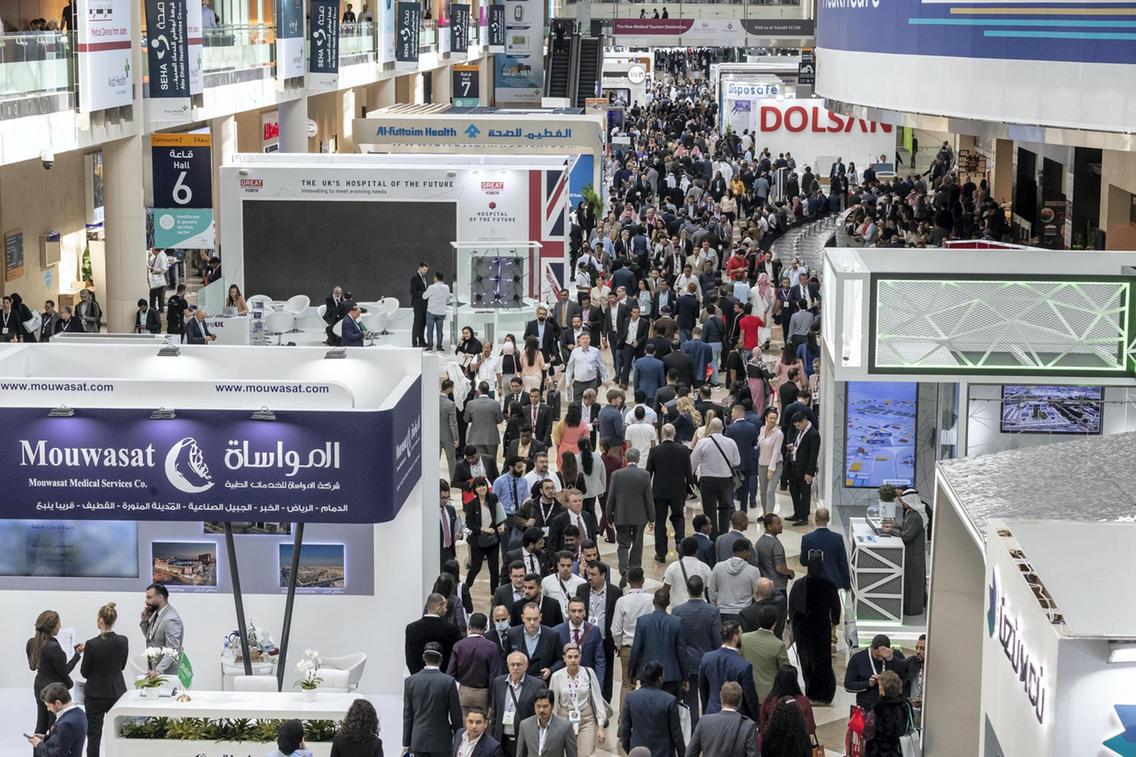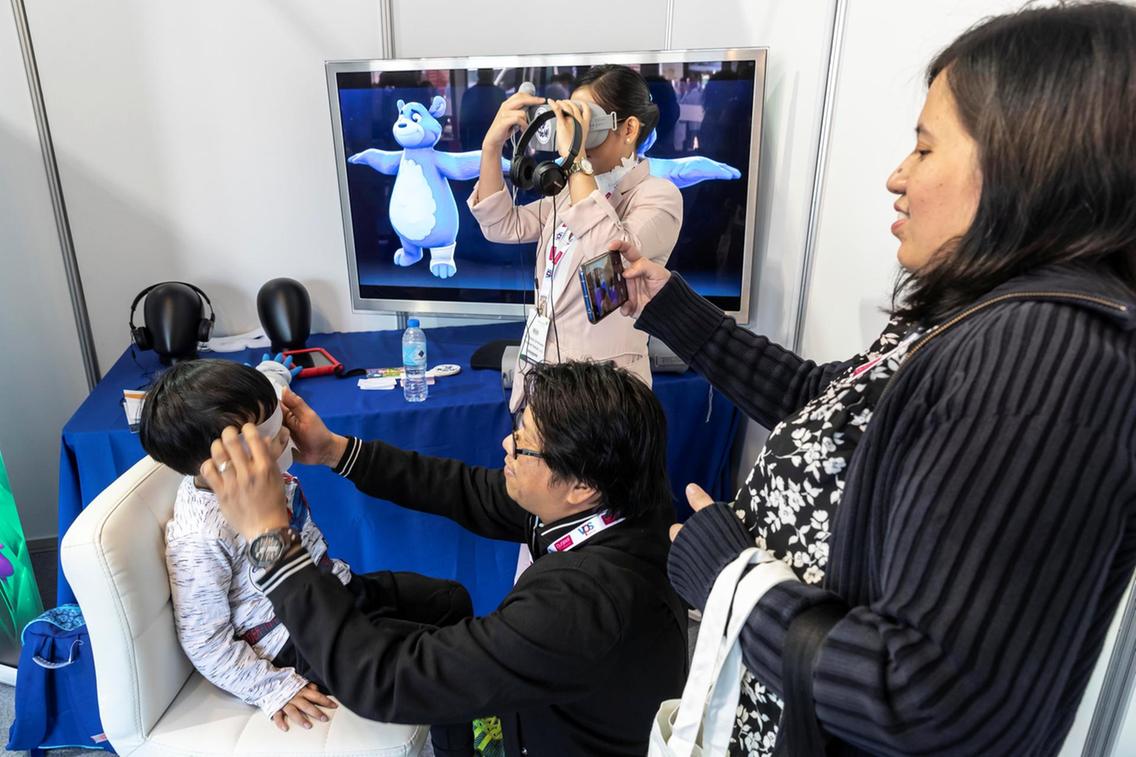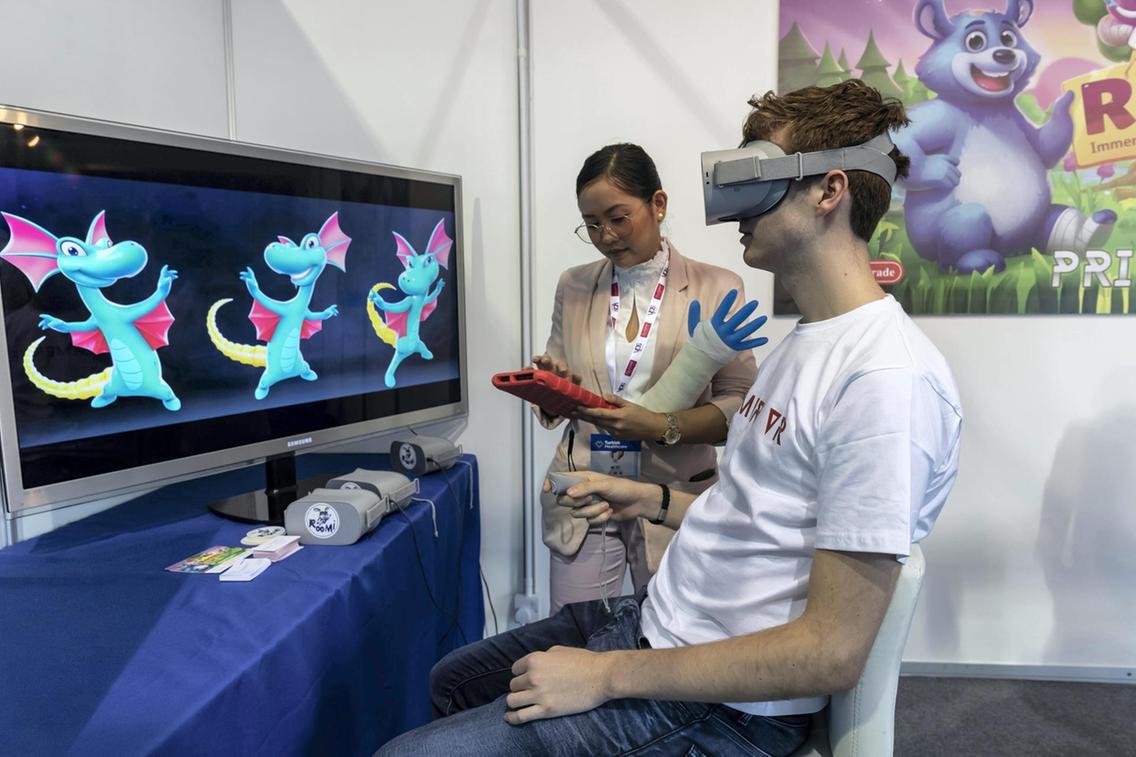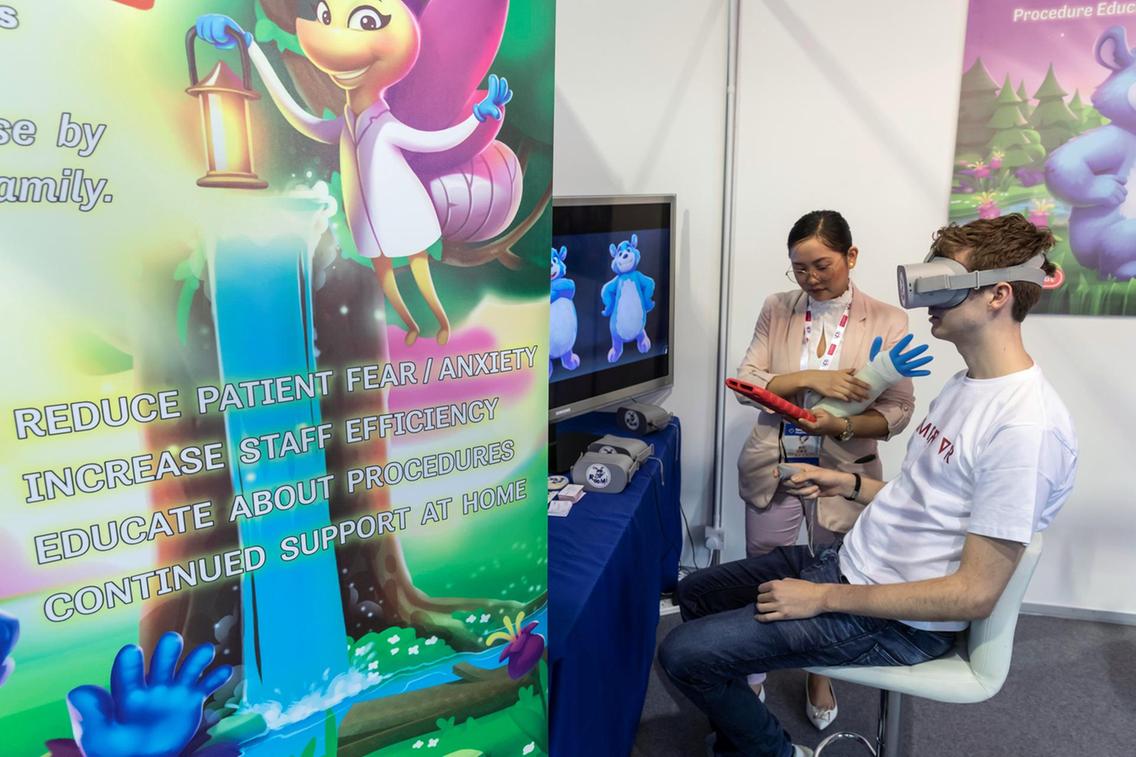Arab Health 2020: virtual reality headsets used to tackle child anxiety in hospitals
A cartoon bear who lost his hair from chemo is among the characters used to ease sick children's worries
A clever virtual-reality programme is putting nervous children at ease by showing the simplicity of common medical procedures.
A seven-minute film features three cartoon characters who have treatment from Roomi, a doctor rabbit with a jetpack who flies in to treat his patients in a virtual world.
Children sit through the short educational message to help ease their anxiety before having the same procedure as that of the character they watched through a headset.
The technology was on show on day two of Arab Health in Dubai, the region’s largest medical exhibition.
“When children come into a hospital they are usually scared or frightened; that makes giving them certain medical treatments difficult,” said Shauna Heller, project manager at Clay Park VR, another company working on the same project.
“Putting them in a VR headset and sharing information in a fun way about the procedures they are about to have reduces their stress.
“It makes it easier for nurses to take blood, provide a vaccine or put a limb into a cast.”
Children watch the seven-minute film before their treatment.
Designers worked with doctors at Los Angeles Children’s Hospital to understand what procedures cause the most stress, and created a world populated by characters with similar ailments. Content shows what is going to happen to them during the same procedures.
The short film features a bear called Ladder, who has lost his hair from chemotherapy; Lifeboat, a chameleon with a prosthetic tail; and Lamp, an injured glow-worm.
The characters were the brainchild of Primer VR's creative director and CEO Elia Petridis.
Health companies Pharmatrade and SyMed are delivering the application to care networks across the region.
Standard VR headsets cost from $150 (Dh550) but the ones used for the Roomi programme are more expensive as they are pre-loaded with applications.
A follow-up mobile phone app uses AR technology to give children advice on how to deal with their injury or illness, with the same cartoon character on hand to answer their questions.
“During our research, doctors told us children are most frightened by the casting process when they come in for broken bones,” said Hanadie Zondervan-Sheikh, a digital product manager at Primer VR, one of the companies behind the project.
“It is difficult to give them an effective cast as they are scared of all the equipment doctors use.
“The same tools are used on the cartoon characters in the film, so it puts them at ease.
“It looks playful, and shows there is nothing to be afraid of.
“By the time they come to have the cast done, they know what to expect.
“Once a child is scared, the parents become anxious so the more we can reduce that the better.”

